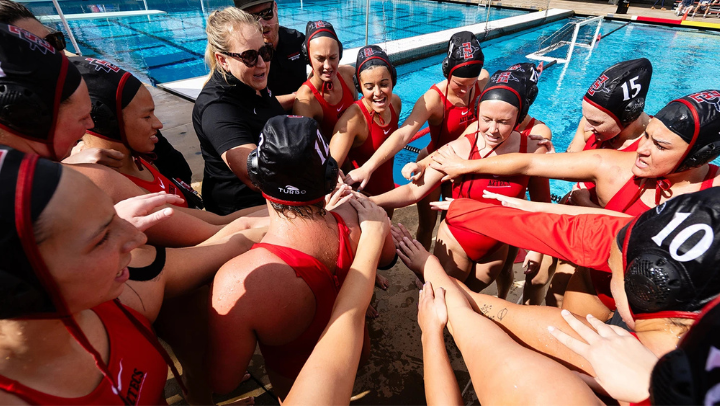Changing the Face of Therapy
SDSUs Marriage and Family Therapy program breaks down barriers to mental health for communities of color.

“We are making real, intentional efforts to be more inclusive in the offerings that we have.”
Angel-Lynna Tran grew up in Stockton, California, raised by a single mother in a traditional Vietnamese American household. On the surface, hers was a story of success. She excelled in school and became a first-generation college student upon her acceptance to San Diego State University.
What others couldn’t see — and what Tran herself couldn’t identify or address until years later — is that she was battling depression and anxiety.
“Coming from an Asian community, we didn’t talk about mental health and we didn’t talk about feelings,” said Tran, a 2021 graduate of SDSU’s Marriage and Family Therapy (MFT) master’s program who now works as a school-based therapist.
“You go to school, you get your work done and, as long as you get good grades, your parents are happy,” she said. “I knew there was something I was struggling with, but I didn’t know how to name it.”
It’s a dynamic that resonates with MFT graduate student Ayuja Dixit, who was raised by Indian immigrants in an affluent Los Angeles suburb.
“Therapy was not seen as helpful or medicinal — it was seen like, ‘Oh my gosh something must be really, really wrong with you,’” Dixit recalled. “A very strong piece was being a so-called ‘model minority.’ You cannot show that there is anything wrong with the family.”
In many communities of color across the U.S., an aversion to therapy — or even discussing mental health issues — is a common thread. The reasons are many, including: cultural stigmas, lack of access, exclusion and ethnocentrism within the psychotherapy field itself.
SDSU’s MFT program, which trains professionals to provide therapeutic services to couples, families, groups and individuals, is working to change that.
“The face of therapy is shifting,” said Sesen Negash, associate professor in counseling and school psychology and director of the MFT program. “We are making real, intentional efforts to be more inclusive in the offerings that we have — not just in terms of services or interventions but also the folks that are offering the therapy in the first place.”
Cultural responsiveness
A big part of that effort is the program’s focus on culturally responsive practices: instilling curiosity and openness in future therapists, but also an understanding that their clients’ social, cultural, political and economic contexts matter a great deal.
Therapists who approach diverse clients with a Eurocentric or one-size-fits-all approach can often do more harm than good. Cultural differences can be viewed as abnormalities or, worse yet, psychological deficits.
“It’s very easy to pathologize what one does not understand,” Negash said. “People go in and feel not heard, but also judged, misdiagnosed and labeled.”
SDSU’s program is also making strides in bringing more racial, ethnic and linguistic diversity to the profession itself. More than 75% of SDSU’s MFT students are people of color, and Negash estimates more than half of the trainees in her 30-student cohort speak languages other than English, the most common being Spanish, Arabic, Urdu, Korean and Chinese.
“Having participated in programs both as faculty and as a student, I’ve never seen the numbers that we have,” said Negash, who credits MFT’s diversity on location and affordability (SDSU is the only public institution in San Diego with an accredited program).
“Other programs strive for diversity, but I think our program really exemplifies it.”
Changing the narrative
Dixit and Tran seem happy to be its exemplars. In fact, it’s a big part of their motivation.
Dixit, who identifies as queer and nonbinary, said they were deeply affected as a child by a family member’s mental illness, but never had an outlet within the Indian American community to talk about it or address it.
“Things couldn’t be talked about,” they said. “That definitely led me to wanting to open up a space where people felt comfortable in my community. I think one of the biggest shifts I see is kids wanting to come out to their parents as part of the LGBTQ community. I see myself supporting them because it is so taboo in our culture.”
Now serving students at Mount Miguel High School in the diverse San Diego County community of Lemon Grove, Tran goes to work every day with one goal in mind: to be the therapist she wishes she had back in Stockton.
“I’m motivated to make people know that they are important and that they are deserving,” Tran said. “No matter what you look like or how you identify, you are still deserving of the respect and care that this world should be able to provide. I want to be that person who shows them that.
“I want to change that narrative.”



